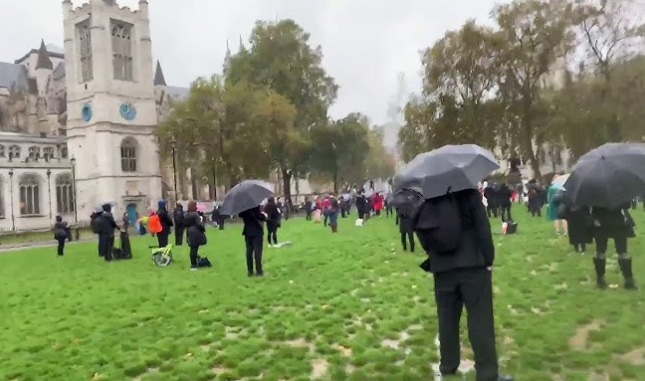
Stephen Pritchard’s Disruptive Action Sparks Debate on Climate Protests
Stephen Pritchard, a 63-year-old protester from Bath, has been sentenced to five weeks in prison for blocking traffic on the M4 motorway during an Insulate Britain demonstration in October 2021. The protest, which disrupted around 10,000 vehicles at Junction 3, has drawn significant attention to the ongoing debate around climate activism and civil disobedience.
Pritchard was sentenced at Inner London Crown Court, while his three co-defendants—Ruth Cook, 71, Roman Paluch-Machnik, 29, and Oliver Rock, 42—received six-week suspended sentences and 100 hours of community service each. Judge Silas Reid noted that Pritchard had expressed a commitment to continue similar protests, stating, “It is not appropriate for me to suspend the inevitable sentence… you will serve up to half of your sentence in prison.”
The judge highlighted the lack of remorse shown by the defendants, commenting that they appeared to take pride in their actions. The protest involved gluing themselves to the tarmac near Heathrow Airport, blocking traffic for approximately two hours. Judge Reid described the operation as “carefully planned” and acknowledged that while they had intended to allow emergency vehicles to pass, the disruption still caused significant harm.
The judge remarked, “Well over 10,000 people were significantly negatively impacted by your actions. People would have lost earnings, missed appointments, and potentially missed flights.” He indicated that the standard sentence for such actions would typically be around 12 months but was reduced due to the protesters’ aim to highlight the climate crisis.
Pritchard’s co-defendants expressed admiration for his bravery, with Rock stating, “I’m sad to see that brave man go to prison today,” while Cook described the decision to refrain from future protests as one of the most difficult she has ever made.
The Insulate Britain group noted that this was the first instance of climate activists in the UK being convicted of the common law offence of public nuisance, a charge that can carry a maximum penalty of life imprisonment. Judge Reid acknowledged the historical significance of protest in the UK but reiterated that the right to protest does not justify disrupting the lives of thousands.
As the defendants prepare to adapt their protest strategies in light of increasing legal repercussions, they emphasize the importance of continuing their advocacy for climate issues, albeit through different means.










